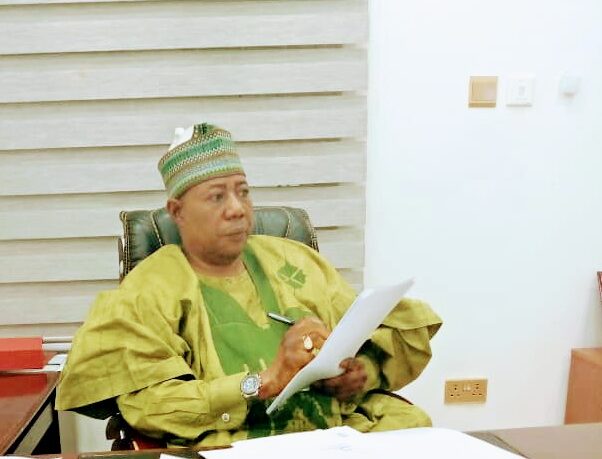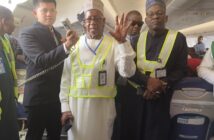There is a general consensus that the only obstacle standing between Nigeria and its glorious destiny is corruption. The menace is so insidious that the former United Nations secretary general, Kofi Annan, succinctly put it thus: “Corruption hurts the poor disproportionately— by diverting funds intended for development, undermining a government’s ability to provide basic services, feeding inequality and injustice, and discouraging foreign investment and aid.”
In view of the foregoing, it is obvious that fighting corruption to a standstill is central to the realisation of the Renewed Hope mandate of President Bola Ahmed Tinubu. No doubt, Nigeria has always evolved institutional mechanisms to deal with the malignant cancer of corruption.
The efforts led to the establishment of Independent Corrupt Practices and Other Offences Commission (ICPC) in the year 2000 and Economic and Financial Crimes Commission (EFCC) in 2004. This is in addition to the ministry of Justice and the Code of Conduct Bureau (CCB) which was established in 1979 during the Second Republic after 13 years of military rule by the founding fathers of the first post-military constitution. The 1979 Constitution provided a list of Codes of Conduct for public officers.
Highlighting this background becomes necessary to underscore the efforts made so far in tackling corruption. However, one of the greatest and most influential scientists of all time, Albert Einstein, once described insanity as doing the same thing over and over again and expecting different results.
All the efforts Nigeria invested in fighting corruption since 1979 through various institutions of government have yielded less fruits. There’s need for a change of tactics, if the Renewed Hope agenda is not to go the way of others before it.
The nomination by President Tinubu, screening and subsequent confirmation of ministers by the Senate climaxed the preparedness of the executive arm of government and its team to set sail on a mission to deliver on the Renewed Hope Mandate promised Nigerians.
As the prolific authour, George Orwell, famously wrote in 1986, “power is not a means, it is an end.” The end of power is better life for the people and societal transformation. It is expected that any moment from now, the ministers will be assigned portfolios. Since power is a means, the ministers with the active support of the president are expected to start delivering the goods. How do we intend to achieve this lofty ideal of lifting our people out of poverty, despair and degeneration? Should we continue business as usual and expect a different results or put some measures in place to enable evaluation of performance and strengthen government’s institutions?
Prosecution and implementation of performance evaluation will drive efficiency in government’s day to today operations by evaluating high performing ministries.
A semi-legendary ancient Chinese Taoist philosopher, Lao Tzu, was credited with the famous quote that says, “He who knows that enough is enough will always have enough.” Nigerians and the government must realise that enough is enough.
No matter how long you have traveled in the wrong direction, you can always turn around. That is why I am using this medium to begin agenda setting for the incoming Attorney General of the Federation (AGF) and Justice minister. He can’t afford to disappoint Nigerians this time around.
To begin with, it is the primary duty of the president to champion constitutional powers that provides equal but complimentary roles for the arms of government so that we can have the kind of corruption prosecution that Nigerians can be proud of. The 21st century prosecution is information driven. Every prosecutor should actively and dispassionately play their roles in the present administration’s anti-corruption efforts.
Hitherto, we witnessed a situation whereby institutions just existed for the fun of it, while their constitutional roles suffer. Another thing we must not tolerate this time around is political interferences which most times inhibit institutions of government from performing their constitutionally assigned roles.
If the Tinubu administration must succeed in reducing the menace of corruption, the president must issue stern warning or draw the red line for his ministers who might want to use government privileges to interfere with the work of anti-corruption agencies like the Economic and Financial Crimes Commission (EFCC), Independent Corrupt Practices and Other Offences (ICPC), Code of Conduct Bureau and the ministry of Justice.
Performance evaluation is a well established practice in successful organisations worldwide. It allows for the assessment of individual contribution and help align with government strategic objectives.
Against the backdrop of the strategic roles EFCC, ICPC, Ministry of Justice and CCB have to play in ensuring that funds meant for meaningful developments are not diverted, President Tinubu must do everything possible and within the constitutional powers of his office to support this anti-corruption agencies. This is imperative since corruption is the enemy standing between Nigerians and the much deserved better life.
Another area the president must supervise closely against is the area of inter-agency rancour. In the aftermath of 9/11, everyone, from elected officials and national security experts to ordinary citizens of the United States, had one question: how could this happen to a nation with such an enormous and expensive military and intelligence architecture?
The problem was inter-agency rivalry. They were not sharing intelligence. Nigeria must learn from what US suffered because of inter-agency rivalry instead of inter-agency collaboration through intelligence gathering and sharing. Intelligence on movement of money and suspicious deals should be shared across board. No single agency of government will take the glory alone.
The great mass of Nigerians endorsed and supported Tinubu during his campaign in the last presidential poll. In him, they saw a ray of hope that sparked unalloyed confidence in him to build a strong bridge between the rich and the poor masses by ensuring justice for all. They are expecting to see him strengthen the country’s criminal justice system with a view to bringing looters of the nation’s coffers to book.
Now, the ball is in Tinubu’s court to make the difference. It is time to stop appointing for reward sake. Performance should be the yardstick to determine who continues and who is given the boot. It is time to get Nigeria working again. If we don’t fight corruption, corruption will destroy us. This is why hunting the hunters has become necessary.
– Ibrahim is director, Communication and Strategic Planning, of the Presidential Support Committee (PSC).



